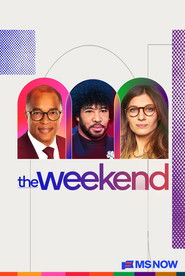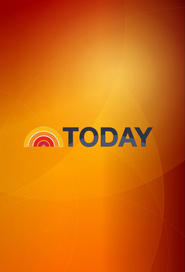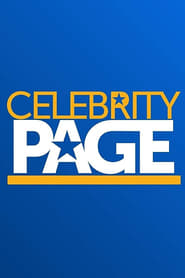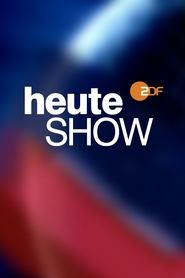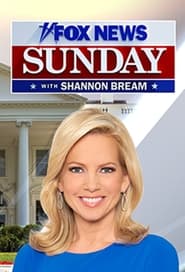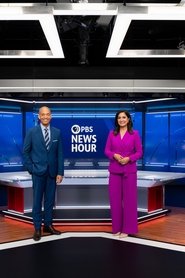News TV Series - Page 4
-
Face The Nation
1954
Face The Nation
1954
star 8Face The Nation with Margaret Brennan is an American Sunday morning political interview show, which premiered on the CBS television network. It is one of the longest-running news programs in television history, having debuted in 1954. -
Grimme Award
1964
-
Die ZDF-Hitparade
1969
Die ZDF-Hitparade
1969
The ZDF-Hitparade, or Hitparade for short was one of the most popular and most well-known music television series presenting mostly German Schlager. -
TheWeekend
2024
TheWeekend
2024
star 10Jonathan Capehart, Eugene Daniels, and Jackie Alemany team up to bring their wide range of political expertise every Saturday and Sunday morning. Fresh analysis of the week's biggest events and a rotating crew of major newsmakers. -
Today
1952
Today
1952
star 5.6Today is a daily American morning television show that airs on NBC. The program debuted on January 14, 1952. It was the first of its genre on American television and in the world, and is the fifth-longest running American television series. Originally a two-hour program on weekdays, it expanded to Sundays in 1987 and Saturdays in 1992. The weekday broadcast expanded to three hours in 2000, and to four hours in 2007. Today's dominance was virtually unchallenged by the other networks until the late 1980s, when it was overtaken by ABC's Good Morning America. Today retook the Nielsen ratings lead the week of December 11, 1995, and held onto that position for 852 consecutive weeks until the week of April 9, 2012, when it was beaten by Good Morning America yet again. In 2002, Today was ranked #17 on TV Guide's 50 Greatest Television Shows of All Time. -
MDR um Zwei
2014
MDR um Zwei
2014
-
OK! TV
2011
OK! TV
2011
star 4OK! TV is an early evening magazine programme, broadcast on Channel 5 as a brand extension of celebrity title OK! Magazine. It replaced the former magazine and discussion show Live from Studio Five on 14 February 2011, and was presented by Kate Walsh and Matt Johnson, both of whom later left the programme. Jeff Brazier and Jenny Frost replaced Walsh and Johnson in August 2011 and presented the show until its cancellation. The show was made by the 5 News team and produced by Sky News for Channel 5. On 8 November 2011, it was announced that the show has been cancelled by Channel 5. The show aired its final edition on 16 December after ten months on air due to the contract for 5 News returning to ITN. -
Infoman
2000
Infoman
2000
star 7.3Jean-René Dufort and sidekicks Chantal Lamarre and MC Gilles serve up delirious send-ups of the week's news events. -
heute-show
2009
heute-show
2009
star 7.1Oliver Welke and his team report on political topics as well as international news giving them their own satirical, comedic twist. -
Brisant
1994
-
Zone interdite
1993
Zone interdite
1993
star 5For thirty years, Zone Interdite has been the magazine that documents and analyzes the upheavals in French society. Conducted over time, the investigations broadcast in the program reveal the taboos, passions, and struggles of the French people at the heart of current events. -
VICE News Tonight
2016
VICE News Tonight
2016
star 6.6VICE News' half-hour nightly newscast. We now interrupt your regularly scheduled worldview. -
Al Bernameg
2011
Al Bernameg
2011
star 8.6Al Bernameg is a popular Egyptian satirical program. The series is hosted by satirical comedian Bassem Youssef on the satellite channel CBC. The press has compared it to The Daily Show hosted by Jon Stewart, which was the inspiration for this show. Youssef visited The Daily Show as a guest in April 2013, while Stewart, on hiatus from his own hosting duties, returned the favor on El Bernameg in June 2013. -
传奇故事
2005
-
Goldene Kamera
1984
-
Fox News Sunday
1996
Fox News Sunday
1996
star 3.3Fox News Sunday with Chris Wallace is a Sunday morning news/talk show on the Fox Broadcasting Company; since 2003, Fox News Sunday has been hosted by Chris Wallace. -
Access Hollywood
1996
Access Hollywood
1996
star 5.1Access Hollywood is a weekday television entertainment news program covering events and celebrities in the entertainment industry. It was created by former Entertainment Tonight executive producer Jim Van Messel, and is currently directed by Robert Silverstein. In previous years, Doug Dougherty and later Christopher A. Berry directed the program. Access Hollywood primarily focuses on news in the music, television, and film industries. The United States version began broadcasting on September 9, 1996, and is nationally syndicated in the United States. In 2003, a British version of the show began production and in an Irish version began in 2006 airing on the now defunct Channel 6, now known as 3e. In Canada, CTV Two has aired the program since September 5, 2011. -
This Hour Has 22 Minutes
1993
star 6.6This Hour Has 22 Minutes is a weekly Canadian television comedy that airs on CBC Television. Launched in 1993 during Canada's 35th general election, the show focuses on Canadian politics, combining news parody, sketch comedy and satirical editorials. Originally featuring Cathy Jones, Rick Mercer, Greg Thomey and Mary Walsh, the series featured satirical sketches of the weekly news and Canadian political events. The show's format is a mock news program, intercut with comic sketches, parody commercials and humorous interviews of public figures. The on-location segments are frequently filmed with slanted camera angles. -
PBS News Hour
1975
PBS News Hour
1975
star 5.6America's first and longest running hour-long nightly news broadcast known for its in-depth coverage of issues and current events.


